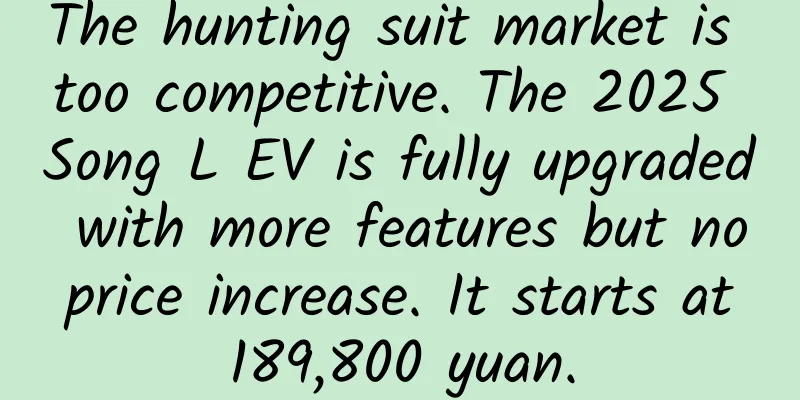The "confrontation" between domestic mobile phones and Apple

|
According to statistics from a gossiper, domestic mobile phones criticized competitors 27 times in 19 press conferences last year, and Apple was criticized 10 times, twice as many as Huawei, which ranked second. Forced criticism is a common trick for new brands to rise to the top. Domestic mobile phones are no longer Wuxia Amon, so why do they continue to do this? Mobile phone marketing has a fixed routine. In spring, we talk about innovation, in summer, we tell stories, in autumn, we talk about feelings, and in winter, we compete for revenue. Different stages have different tasks. "Fighting Apple" is at most a primary form of competition, and its symbolic significance is far greater than its actual value. The key point is that domestic mobile phones and Apple are not considered friendly competitors. The iPhone's share in China has fallen for four consecutive years since 2015, and was only around 9% last year. The fundamental reason is that the supporting facilities are mature, there is overcapacity, and users are tired of aesthetics, which gives domestic mobile phones the opportunity to take on the low-end demand that Apple disdains and is unable to take care of. From a technical perspective, Apple's loss of this part of demand has not affected its fundamentals. In fiscal 2018, Apple's revenue and profits increased by more than 16% year-on-year. iPhone sales were $160 billion, up 18% year-on-year, and profits were three times the sum of the top four mobile phone brands in China. Apple's stock price soared 49% throughout the year, breaking the trillion mark for the first time on August 2, and Cook received a $12 million bonus and $210 million in stock rewards. Considering that Samsung's mobile phone market share in China is only 1%, but it still dominates the global shipment championship, it can be seen that the impact of sluggish demand in China on Apple and Samsung is not as great as imagined. Apple has been stabilizing its revenue and profits by upgrading the iPhone. The first generation iPhone started at US$499 in 2007, the iPhone 4 was US$599 in 2010, the iPhone 5 was US$649 in 2012, the iPhone 6 was US$749 in 2016, and the starting price of the iPhone X in 2017 reached US$999. Apple's ASP growth rate is not the fastest, but the absolute value is the highest among all mobile phone brands. Please input the picture: Apple's ASP growth rate has fallen, but the absolute value is scary Combining the shipment and sales data of major institutions, we roughly estimate that the average price of iPhone in China is around 5,400-5,500 yuan, ranking first without surprise. Samsung is 3,800-3,900 yuan. Huawei is the only domestic brand with an average price of more than 2,000 yuan. Xiaomi is stuck in the 1,300 yuan range, Meizu has degenerated into a thousand-yuan phone, and the Hammer phone has completely lost its statistical value. The fact that some models of Huawei and OV have broken through the 5,000 yuan range or even reached the 10,000 yuan range does not mean direct competition with Apple. The fact that the latter never responds to allegations of fraud also illustrates this point. In the international market, Japanese market research agency AUNCON has conducted a study that the higher the per capita income of a country, the higher the market share of the iOS system. This is true for Switzerland, Denmark, Norway, Sweden, and other countries such as the United States, Canada, Australia, New Zealand, Japan, the United Kingdom, etc. Among the Nordic countries, only Finland is an exception, and the reason is well known. The 10 countries with the highest Android market share are Egypt, Iran, Brazil, South Korea, Malaysia, Mexico, Turkey, Thailand, Indonesia, and India. The reason why South Korea is on the list is also well known. The truth is that there is no substitute relationship between domestic mobile phones and iPhone. According to normal logic, Huawei should fight against OV, and Xiaomi and Honor should fight against each other, which is effective competition. The enthusiasm for fighting Apple deliberately blurs the corresponding relationship of brand differences, which is more like public relations rather than sales strategy. Mercedes-Benz is not selling well, which means that the target customers' income and taste have changed (such as choosing other luxury brands). You insist that it is because of the competition from Jetta. Isn't that ridiculous? The situation in China's mobile phone market is special. The 5G concept has suppressed demand, and the wave of phone replacement may be delayed until 2021. The top brands must ensure revenue and survive the winter safely. When the instinct to survive outweighs the urge to tell stories, it is normal for Xiaomi to finally confront Honor. However, the audience who are used to the "Apple-black" drama are not used to it. In fact, the demand for domestic mobile phones to challenge Apple has always existed. Counterpoint Research conducted a survey and found that half of Chinese users are willing to buy smartphones priced above $400, and one-third of them are willing to buy products priced above $500. To capture this demand is certainly not by bragging or confusing people, but by discovering and attacking Apple's strategic shortcomings. Please enter the picture description 53% of Chinese respondents intend to buy a mobile phone priced above US$400 The passing of Steve Jobs has hollowed out Apple's brand power. Cook has always relied on performance rather than innovation and has become a slave to financial reports. However, it is dangerous to underestimate Apple's strategic error correction capabilities. It is easy to ridicule Cook as a person who only maintains the status quo. He stands out in Apple, which is full of talented people. He has his own strengths. What Steve Jobs admired most was his character of doing his job well and keeping his boundaries. Cook may not have done anything earth-shattering, but he will never make mistakes easily. From a macro perspective, Apple's Mac, iPad, wearable products and service revenues have always performed well, supporting Apple's stock price to return to a technical bull market. The real danger is that iPhone dependence has developed into dependence on a certain model. Cook gave up Apple TV and the promising autonomous driving, and turned his attention back to the internal affairs to consolidate the core business that can bring in real money and make up for the technical shortcomings exposed by the Qualcomm lawsuit. This decision is completely correct, but exchanging time for space still depends on the dominance of the iPhone. Nearly 63% of Apple's revenue in fiscal year 2018 was generated by the iPhone, but there are no more than 10 models on sale, and the profits are contributed by a few star models, so the launch of new products in September every year is of great significance. Apple's fiscal year runs from October 1st to September 29th of the following year. The first quarter is highly valued because it includes Christmas and is the main period for new product sales. In the first quarter of fiscal year 2018, iPhone sales reached 77.316 million units. However, the situation this year is not optimistic. Revenue and profit have dropped significantly year-on-year, which made Cook anxious. However, his countermeasures are somewhat contradictory. On the one hand, Apple has withdrawn from the hot shipment game and will no longer release this data starting this year. It is more in Apple's interest to use sales rather than shipments to speak. On the other hand, the departure of Angela Ahrendts, Apple's No. 2 figure and queen of luxury goods, seems to indicate some reflection on the original pricing system. Apple has recently tried some aggressive sales strategies on Chinese e-commerce platforms, and cheap iPhones have also appeared on Pinduoduo, giving people the feeling that Apple is hesitating between niche high prices and small profits but quick turnover. In the future, it may refer to Samsung's strategy of flooding the market with products, or it may learn from Huawei and Xiaomi's multi-brand operations. But this is just an illusion, because:
Apple's response strategy must consider two things. The first is to speed up the iteration of new products. Since Steve Jobs, Apple has only released a big product every two years. Small iterations in odd years can no longer support the high premium of products. Previously, Apple secretly slowed down the old iPhone models. Although the official explanation was to protect the devices, everyone suspected that it was to speed up the replacement of the phones. Apple was sued for this. Therefore, Cook launched a care plan for old users called "Repair Vintage Apple Products Pilot" to provide repairs for those old devices, but it is not completely free. We also do not rule out that Apple store employees "kindly" persuade nostalgic old customers: I have applied for a coupon for you. You can add some money to trade in the old for a new iPhone ⅩS Max. In addition, when Cook defended the previous promotional strategy, he also buried a joke. He claimed that the weakening of currencies in some countries was the culprit for the higher iPhone prices, and that Apple's promotions were only to bring prices back to normal levels. This was obviously directed at Greater China, where revenue was declining. It can be seen that Cook does not want Apple's promotions to be understood as a major adjustment to its pricing strategy. Greater China contributes 20% of Apple's revenue, second only to North America and Europe. Low-price competition that hurts the brand is not in Apple's fundamental interests. Apple's next move should be a special edition model. In 2016, Apple tried the iPhone SE, a 4-inch mini screen with a Nokia leftover color shell. It was first sold in China for 3,288 yuan. It was not popular that year and was withdrawn from the shelves in 2017. Unexpectedly, it was put back on the shelves recently, with a price of 249 US dollars on the North American official website. God knows whether Cook has an even more amazing money-making trick like the iPhone SE2 hidden in his pocket. If Apple one day is reduced to relying on fans' faith to recharge and emotions to survive, and really has to customize new products for "stupid people with a lot of money", it would be politically correct for domestic mobile phones to criticize Apple. |
<<: Experts: High power consumption of 5G mobile phones will restrict their market launch
>>: Automatic test input generation for Android: are we done yet?
Recommend
Help! How to put giant "cockroaches" in ramen!
Recently, a ramen restaurant in Taipei, China has...
Is Baidu Netdisk Youth Edition really unlimited in speed? Test results tell you the answer
[[441500]] Baidu Netdisk Youth Edition is here! I...
Landing on a rogue planet? Humans are looking for new ways to migrate across the stars
Recently, American scholars proposed an idea for ...
It's not an allergy! Many people have been infected after "testing positive", doctors remind -
"My right eye was red for 3 days after I tes...
What is it like to update an old iPhone to iOS 10? We did an experiment
Tencent Technology News: In recent years, Apple s...
These 6 diseases sound scary, but they don’t need to be treated.
With the advancement of medical technology, we ar...
SEM bidding hosting service content
The content of SEM bidding hosting provided by Ku...
Indonesian electric vehicle industry observation: With a mine at home, we can follow China's development path and cross the river
Indonesia is the largest economy in Southeast Asi...
Why can doctors diagnose health problems just by looking at the person’s walking?
A friend told Huazi a "miraculous thing"...
3 tips for efficient event operation!
Today, let’s talk about event operations. The so-...
"Honor of Kings" mobile game product analysis report: The rise of Honor of Kings, victory or defeat is so simple!
1. Document Overview and Analysis Purpose Experie...
3 logics and 6 practical skills of Douyin BGM!
You may not have used TikTok, and you may not kno...
What is the sugar-acid ratio of the popular "fruit ring"? It tastes good but it also needs to be in the right amount
As summer approaches, the dazzling array of fruit...
Brother becomes sister? Official announcement: The gender of this chubby cat is actually... wrong!
January 24 A sudden news Topped the trending sear...
Among the "carcinogenic foods" that are circulating wildly in the circle of friends, which one can really cause cancer?
Do you often see this kind of articles in your ci...









